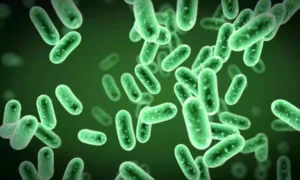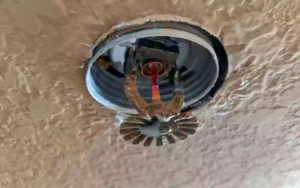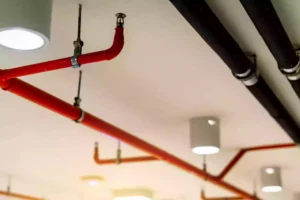5 Myths of Fire Sprinkler System Corrosion
04/18/2016
Corrosion in fire sprinkler systems are always a property or business owner’s absolute worse night mare. As corrosion occurs in pipes, overtime leaks may pop up unexpectedly, this leaves property and business owners at a loss, looking for the right answers.
As you search for answers, it’s imperative that you find the right high quality answers, that can scientifically educate you on what happens to your fire sprinkler systems, and educate you on choosing the right company for your fire sprinkler inspection and maintenance needs.
There are so many myths out there all surrounding corrosion, which could incorrectly influence your decisions to act on responses to fixing the system.
We’ve put together a few myths, and truths, for you to educate yourself and make the right decisions when it comes to your fire sprinkler systems.
Myth #1
Microbiologically Influenced Corrosion (MIC) is the primary cause of pin-hole leaks in fire sprinkler systems. False.
Oxygen is actually the main cause of corrosion. Oxygen will expel metals from the walls of the systems piping and will then produce solid waste. Bacteria has been regularly found inside fire sprinkler systems, but there is no correlation between bacterial contamination and leaks from corrosion.
Bacteria makes up less than 10% of all pin-hole leaks.

Myth #2
The entire system must be replaced once pin-hole leaks are found on a regular basis.
Unfortunately, fire sprinkler systems are removed and replaced completely when most of the piping isn’t damaged by corrosion. Oxygen corrosion is always extremely localized. Corrosion happens in trapped air pockets in a wet fire sprinkler system, and it also occurs in pools of trapped water in dry and pre action fire sprinkler systems. Keep yourself and your wallet happy, by merely removing and replacing the piping that has been effected by corrosion.

Myth #3
Bad water causes fire sprinkler system leaks. False.
Although water chemistry varies throughout the country, but most of the water that is supplied to fire systems is normally very fresh and clean. Fire System’s water source is normally from a municipal water supply.

Myth #4
Galvanized steel works better than black steel to slow corrosion. False.
Galvanized steel for dry pipe fire sprinkler systems can start leaking 3x to 4x faster than black steel.
Black steel pipe can disperse oxygen corrosion. Helping slow corrosion.

Myth #5
The fire sprinkler piping and fittings quality has dropped. False.
Defects from manufacturers are very rare. The quality of the fitting and piping being used today surpasses American Society for Testing and Materials standards. Corrosion is rarely the result of defective piping. It is the exposure to different temperatures and the exposure to oxygenated water that creates quickened attack at the weld seams.
To Sum It Up
Oxygen causes most of the major issues, when it comes to corrosion in the fire sprinkler systems. The amounts of oxygen that’s introduced to the fire sprinkler piping has a direct impact with the timing of corrosion.
YOU CAN SLOW DOWN THE PROCESS!
Contacting Titan Alarm today can help you in the long haul, let us assist you with the preparation and combat of stopping and slowing corrosion in your fire sprinkler systems. Give us a call today 602-680-4567.


